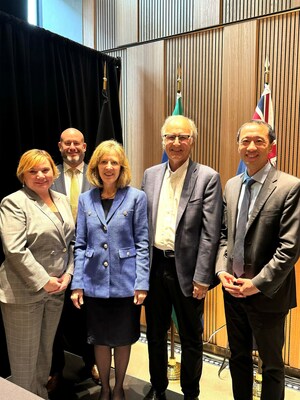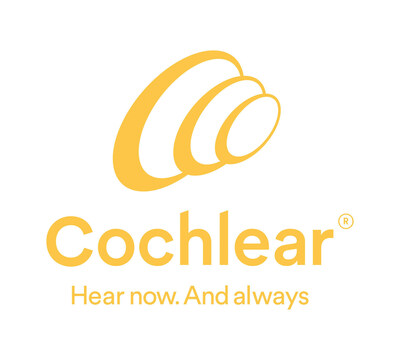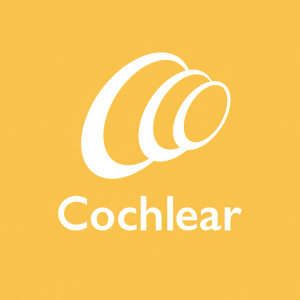Cochlear calls for action in Washington D.C. ahead of World Hearing Day
- None.
- None.
According to the National Institutes of Health (NIH), one in every three people 65 years of age and one in every two 75 years of age and over has hearing loss.1 The event introduced ways to educate not only those in attendance, but the public, to better understand hearing, how it changes over time and the importance of treatment, including the introduction of the Hearing Number by Dr. Frank Lin, Director, Cochlear Center for Hearing and Public Health, Johns Hopkins Bloomberg School of Public Health.
Echoing Dr. Lin's education messaging, panelist Barbara Kelley, Executive Director of The Hearing Loss Association of America (HLAA) spoke about changing mindsets, urging Americans to protect hearing in noisy environments, check hearing with regular exams and treat hearing loss as soon as possible.
Most people know their basic medical information as they age including height, weight, vision and even blood pressure, but one that is left off all too often is hearing, which can have consequences. The Hearing Number hopes to help medical professionals and patients act sooner. Untreated hearing loss can impact a person's brain health, balance, speech and overall quality of life.2
The sentiment of the importance of understanding how hearing effects healthy aging was highlighted by the moderator of the event, Dr. Brian Kaplan, SVP, Global Clinical Strategy & Innovation at Cochlear, Chairman of the Department of Otolaryngology, and Director of the Cochlear Implant Program at the Greater Baltimore Medical Center.
"If left unaddressed, hearing loss poses significant challenges to overall health and can be progressive, leading to greater hearing loss over time. Research has shown untreated hearing loss is connected to increased social isolation and loneliness, balance issues and risk for falls, and there's emerging evidence associating untreated hearing loss with diminished brain health and mental sharpness as well," Dr. Kaplan said.
Someone who knows all too well the impact of hearing loss and is passionate about educating others on the help he received is Lawrence Burns, the former Vice President of Research & Development and Planning for General Motors who suddenly lost his hearing in 1992 and was a panelist at the event today talking about the importance of his hearing treatment with cochlear implants.
"I could feel myself slowly isolating more and more after I lost my hearing. It got to the point where I wouldn't go out to dinner with my family because it was just too hard and I was often questioning if I would ever reach my full potential," Burns said.
"After I took action and received my first cochlear implant in 1993, my life absolutely changed for the better. It helped me get back to fully engaging all aspects of my life from work to family, to basic tasks. The biggest impact that I can reflect on now is that it gave me my independence back, which I will never take for granted," he said.
Burns' story of isolation due to hearing loss is all too common, more than 37 million (
"There are too many people out there suffering that don't know there are treatments available to bring them back into the hearing world. Assembling this group today is one step to bringing awareness and action to this issue. We hope the introduction of the Hearing Number will better equip the public with the necessary tools to assess their hearing and seek treatment when needed," Lisa Aubert, President of Cochlear Americas, said.
"Our goal and what we challenge those here today to do is implement a standard of care and peer support, ensuring equitable access to treatment and care for every child and adult with hearing loss to improve their quality of life."
About the Event
The event opened with remarks from Cochlear Americas President Lisa Aubert. Moderated by Dr. Brian Kaplan, SVP, Global Clinical Strategy & Innovation at Cochlear, Chairman of the Department of Otolaryngology, and Director of the Cochlear Implant Program at the Greater Baltimore Medical Center, the event included a panel of experts at the Australian Embassy which included Dr. Frank Lin, Director, Cochlear Center for Hearing and Public Health, Johns Hopkins Bloomberg School of Public Health; Barbara Kelley, the executive director of the Hearing Loss Association of America (HLAA) and Lawrence Burns a Cochlear recipient and former Vice President of Research & Development and Planning for General Motors.
About Cochlear Limited (ASX: COH)
People have always been Cochlear's inspiration, ever since Professor Graeme Clark set out to create the first multi-channel cochlear implant after seeing his father struggle with hearing loss. Since 1981, Cochlear has provided more than 750,000 devices in more than 180 countries, helping people of all ages around the world to hear. As the global leader in implantable hearing solutions, Cochlear connects people with life's opportunities, and welcomes them to the world's largest hearing implant community.
Cochlear has a global workforce of around 4,800 people, with a passion for progress, who strive to meet the needs of people living with hearing loss. The company continually innovates to anticipate future needs, investing more than AUD
References
- Hearing Loss and Older Adults [Internet]. National Institute on Deafness and Other Communication Disorders; c2017 [cited 19 Sept 2019]. Available from: https://www.nidcd.nih.gov/health/hearing-loss-older-adults.Osia Reliability Report Flyer, Cochlear Limited. 2023; D1841762.
- Brody, J. E. (2018, December 31). Hearing Loss Threatens Mind, Life and Limb. Available from: https://www.nytimes.com/2018/12/31/well/live/hearing-loss-threatens-mind-life-and-limb.html
- https://www.nidcd.nih.gov/health/statistics/quick-statistics-hearing#:~:text=One%20in%20eight%20people%20in,based%20on%20standard%20hearing%20examinations.&text=About%
202% 20percent%20of%20adults,54% 20have%20disabling%20hearing%20loss.
![]() View original content to download multimedia:https://www.prnewswire.com/news-releases/cochlear-calls-for-action-in-washington-dc-ahead-of-world-hearing-day-302074830.html
View original content to download multimedia:https://www.prnewswire.com/news-releases/cochlear-calls-for-action-in-washington-dc-ahead-of-world-hearing-day-302074830.html
SOURCE Cochlear Americas









